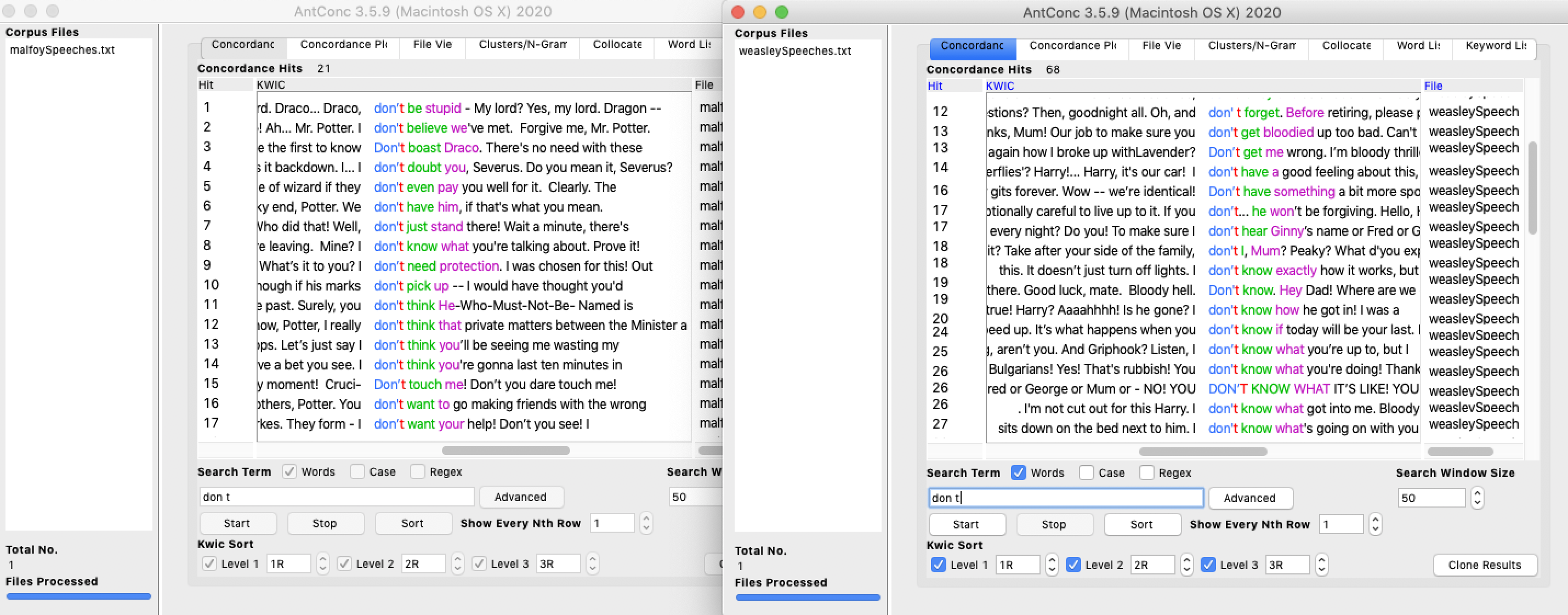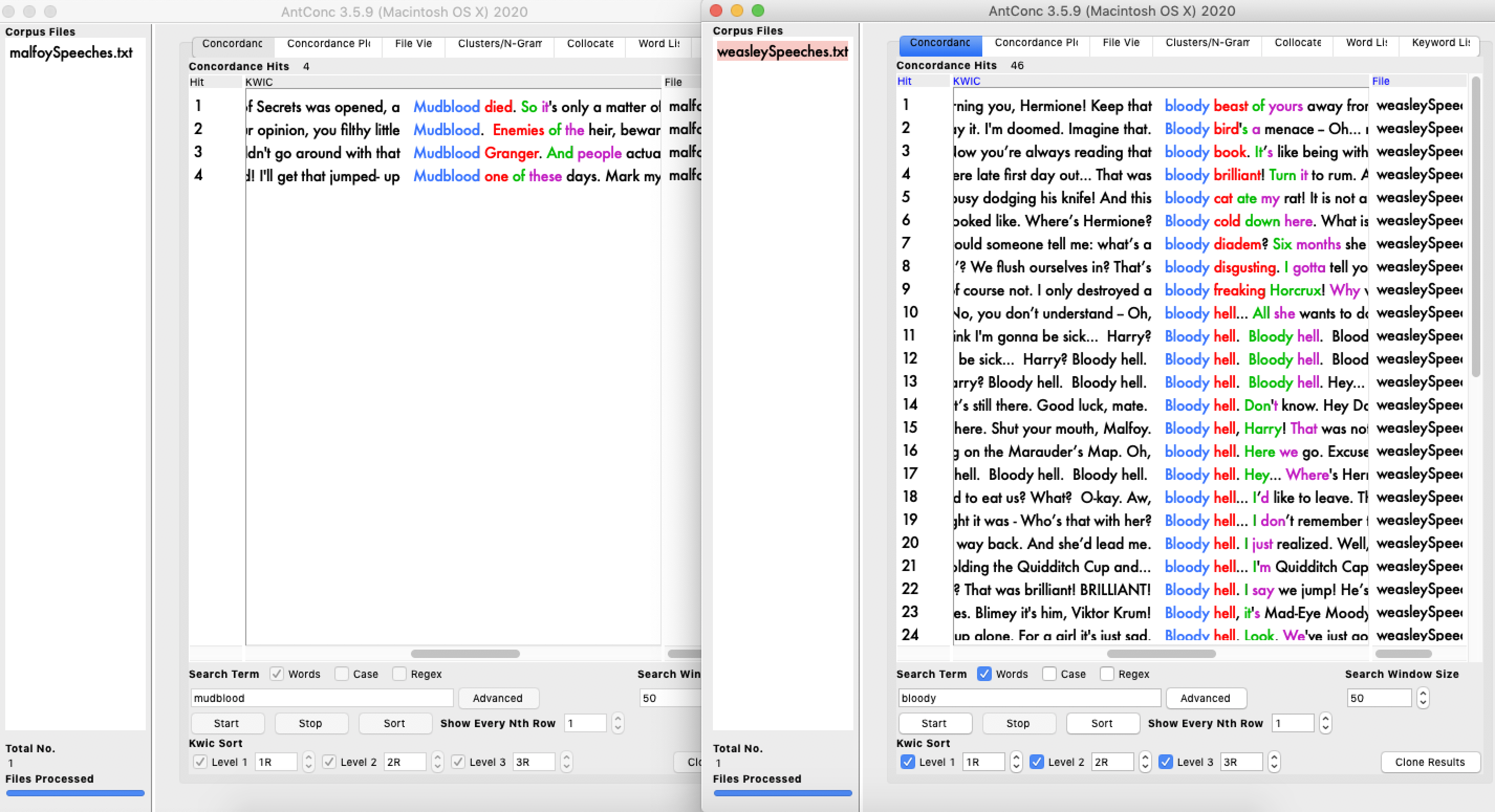| Speaker | Social Class | Total Words Spoken In Corpus | Average Words Per Sentence | Vocabulary Density | Most Frequently Used Words |
|---|---|---|---|---|---|
| Harry Potter | Half-Blood | 16,525 | 5.9 | 0.142 | Know (126), Sir (115), Hermione (98), Just (88), Think 81) |
| Weasley Family (Molly, Arthur, Bill, Charlie, Percy, Fred, George, Ron, Ginny) | Pure-Blood | 12,576 | 6.1 | 0.185 | Harry (178), Know (79), It’s (67), Got (66), Think (61) |
| Hermione | Muggle-Born | 9,919 | 6.7 | 0.208 | Harry (200), Know (63), Ron (51), Just (49), It’s (48) |
| Malfoy Family (Lucious, Narcissa, Draco) | Pure-Blood | 2,801 | 7.4 | 0.321 | Potter (39), Harry (15), Lord (14), Know (12), Weasley (12) |
| Argus Filch & Arabella Figg | Squibs | 376 | 6.0 | 0.590 | I’ll (5), You’re (5), Potter (4), Got (3), It’s (3) |

